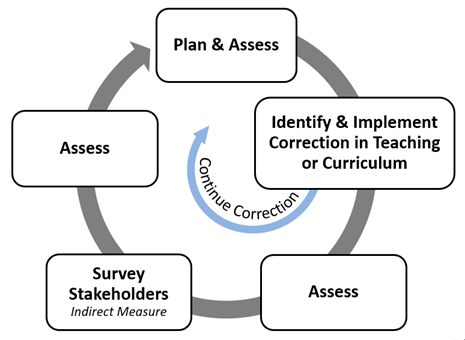Supply Chain Management
The SCM major focuses on preparing students with the necessary skills for successful SCM leadership roles in global corporations and government entities. The Supply Chain focuses on how to organize and optimize all of the information and process flows necessary to bring goods to market. Our students focus on understanding the supply chain at both grand and micro levels, which equips them to identify issues in processes, make informed decisions about how to source materials and select vendors, and be well versed in logistical planning and negotiations.
SCM majors are typically very organized and analytical thinkers. The ability to analyze and focus on the intricate details is essential in contributing to the Supply Chain area. The SCM major is in high demand, especially given the focus on getting both products and services to customers around the world quickly and with exceptional quality. Students with this major can leverage their skill set to work in any industry and contribute very easily in a variety of settings.
Curriculum & Requirements
Degree Schemes, Requirements & Concentrations
View the scheme below based on the semester entering the SCM degree program. Refer also to the School's Academic Policies.
Supply Chain Management BBA
Supply Chain Management BBA with Concentration in Computer Information Systems
Investigate and develop technologies to assist business operations across functional areas. Learn computer fundamentals, databases, data analytics and problem‐solving skills to create technical business solutions. Requires INFO 210, INFO 330, INFO 370 and an INFO elective.
Concentrations are an area of focus in the major discipline. Coursework is fulfilled through required major electives and included in the original 120 credit hour degree requirements. It does not appear on the official transcript.
Advising Worksheets
View the advising worksheet below based on the semester entering the SCM degree program. Refer also to the School's Academic Policies.
Supply Chain Management BBA
Supply Chain Management BBA with Concentration in Information Systems
Lists of Approved Electives
Purpose & Vision
Mission
The Howard University School of Business Supply Chain Management (SCM) program focuses on preparing students with the necessary technical skills for successful SCM leadership roles in corporations and government entities. With a strong foundation of faculty, curriculum and executive sponsorship, the program amply prepares students and thereby provides diverse talent to an ever-increasing global marketplace. The SCM program also supplements the academic experience with “real world” situations by exposing students to corporate environments.
Strategic Goals
- Graduates will be able to understand the processes and operational aspects of procurement, supply chain analytics, and logistics.
- Graduates will understand the various concepts of Supply Chain Management and their integration across the business functional and geographic areas.
- Graduates will be able to apply decision-making analytics to business decisions.
The HU School of Business follows a comprehensive and multi-faceted assurance of learning process in accordance with AACSB standards. All degree programs are assessed by direct measures on the “Business School Core Competencies” and respective “program learning goals” created by Department faculty. Assessment questions are created by faculty and distributed by the Office of the Associate Dean to seniors at the end of their matriculation. The Office of the Associate Dean then reports the data to the Department faculty, who will review and identify any improvement strategies based on the desired target. After implementation, and alongside any surveys determined necessary to any stakeholders, the Office of the Associate Dean will again send the original assessment questions to seniors at the end of their matriculation. Occurring on a staggered, 5-year cycle, this plan “closes the loop” in the year-to-year continuous improvement but also closes the larger “loop” by assessing across the 4-year matriculation cycle.

